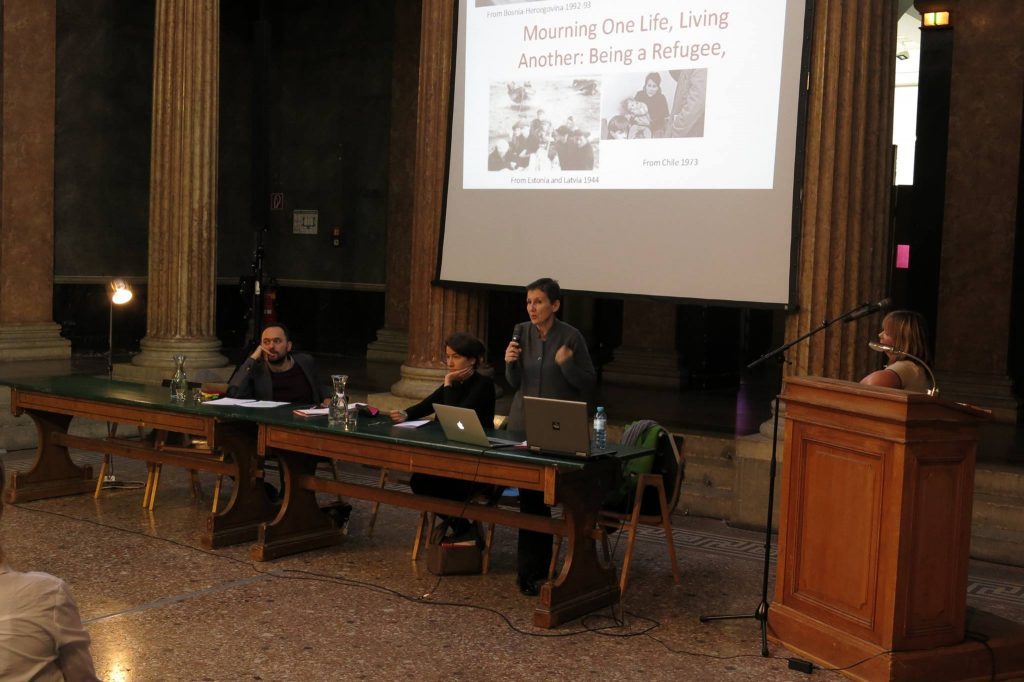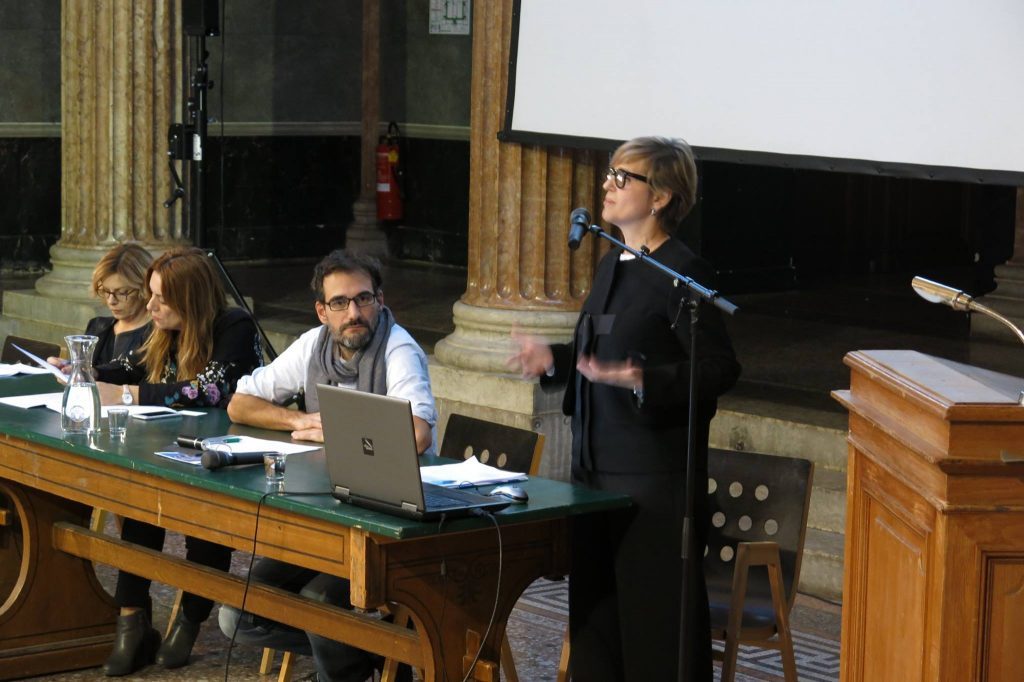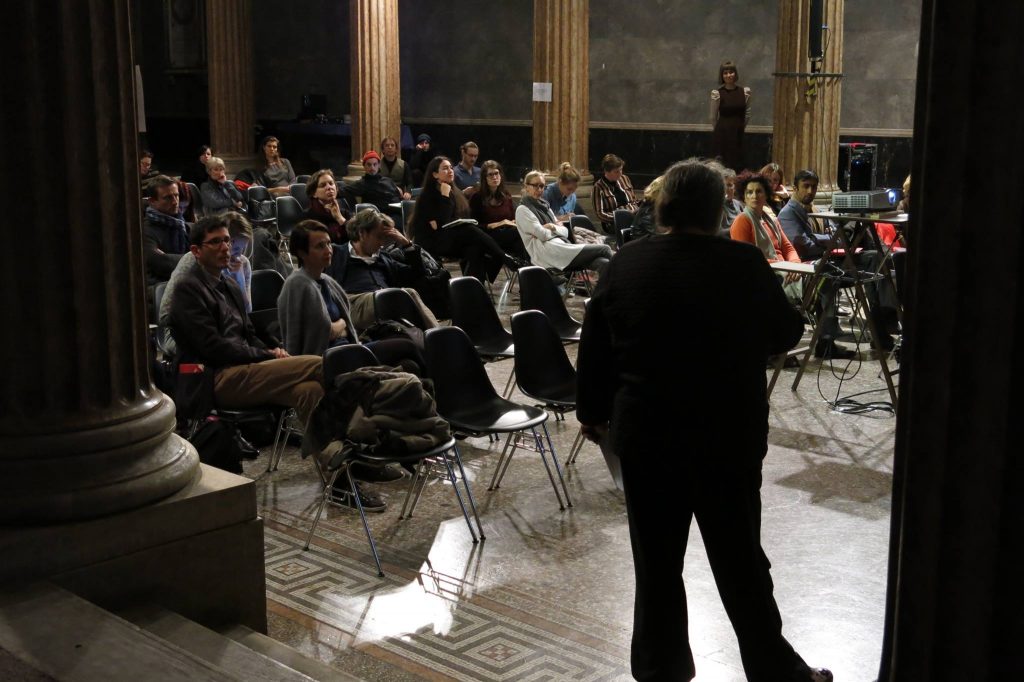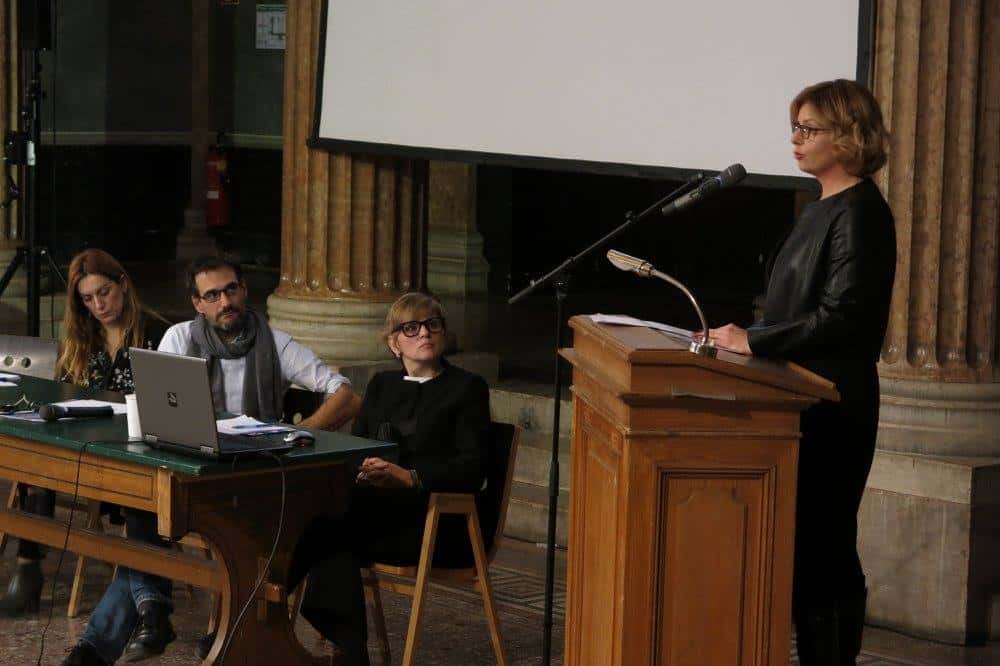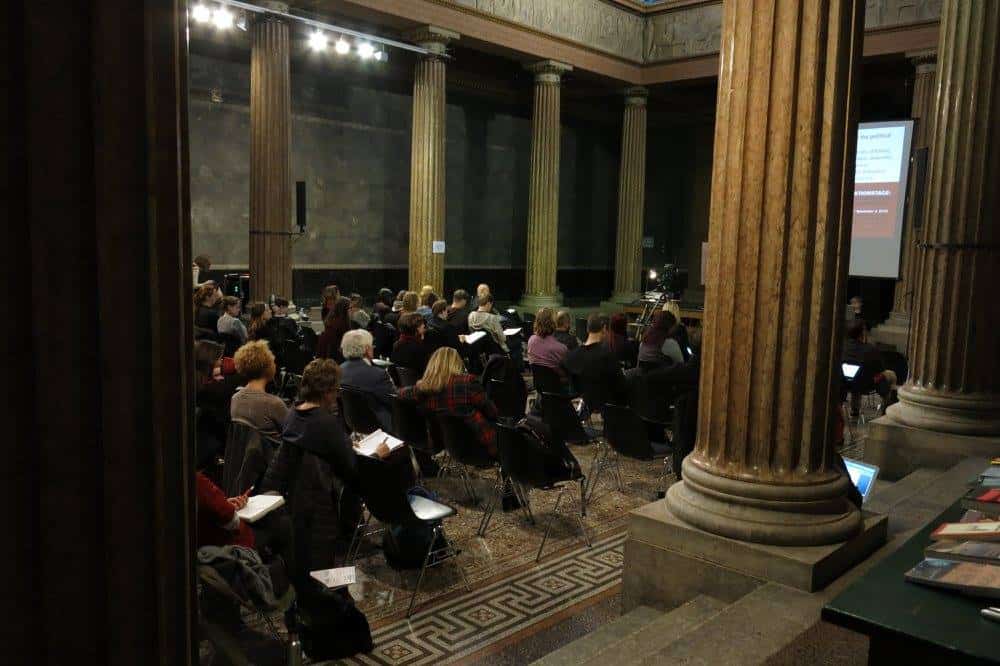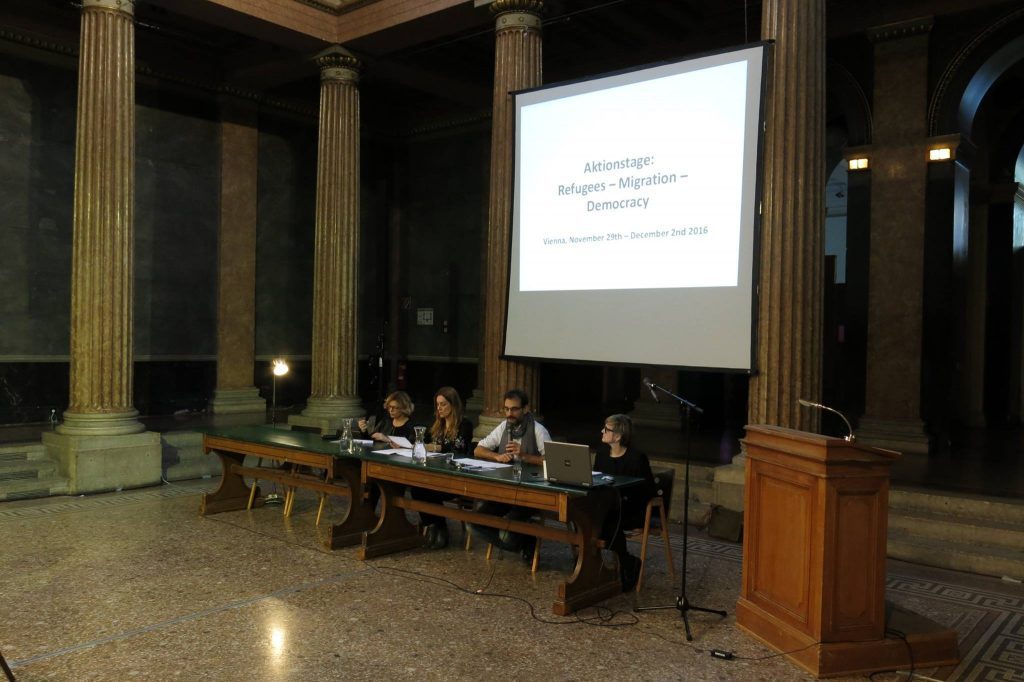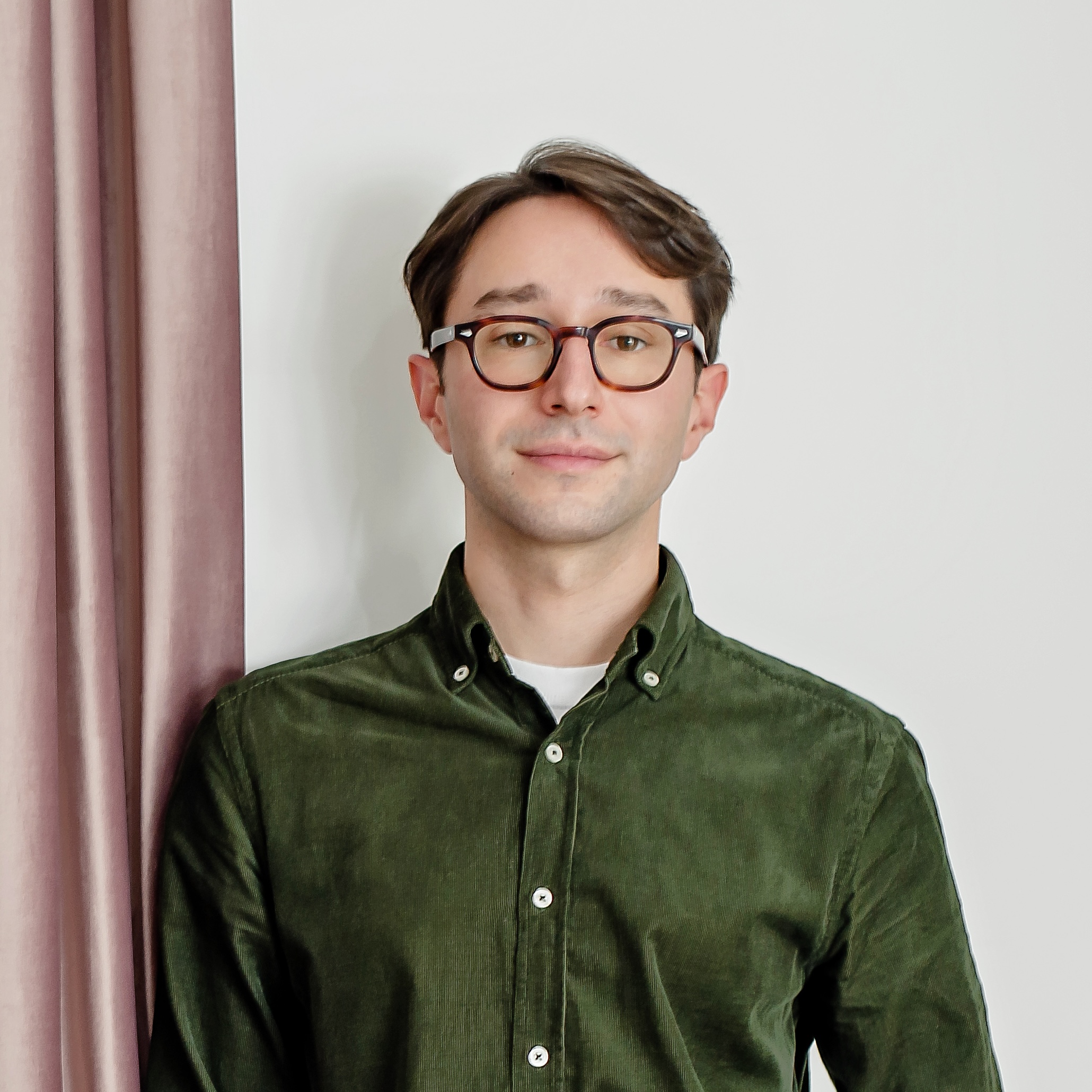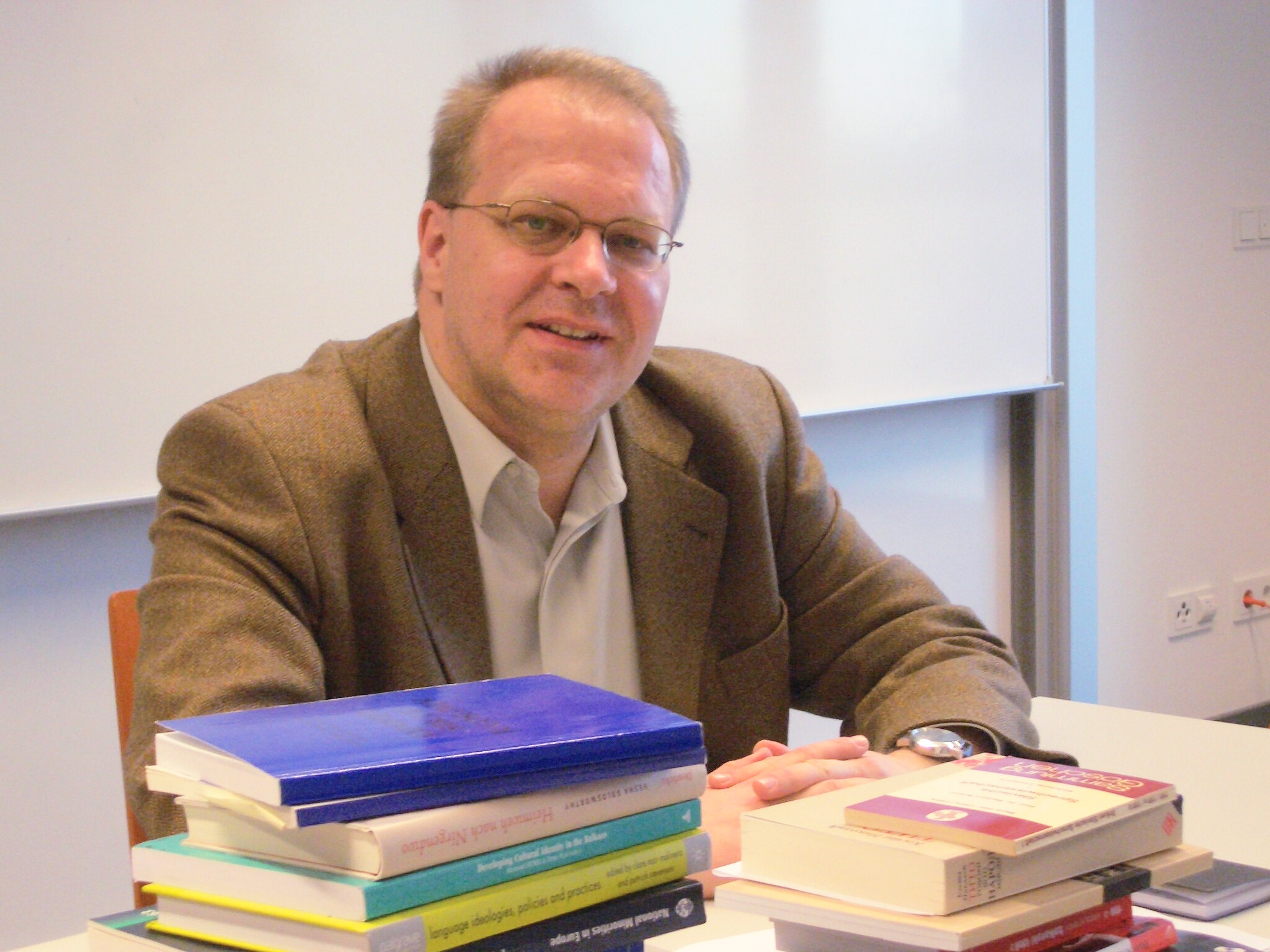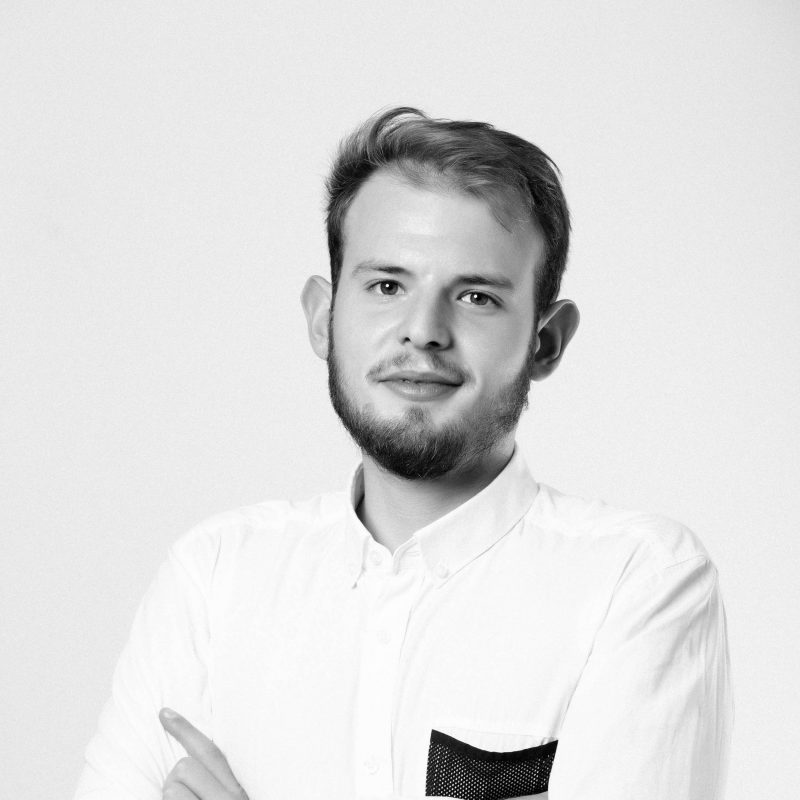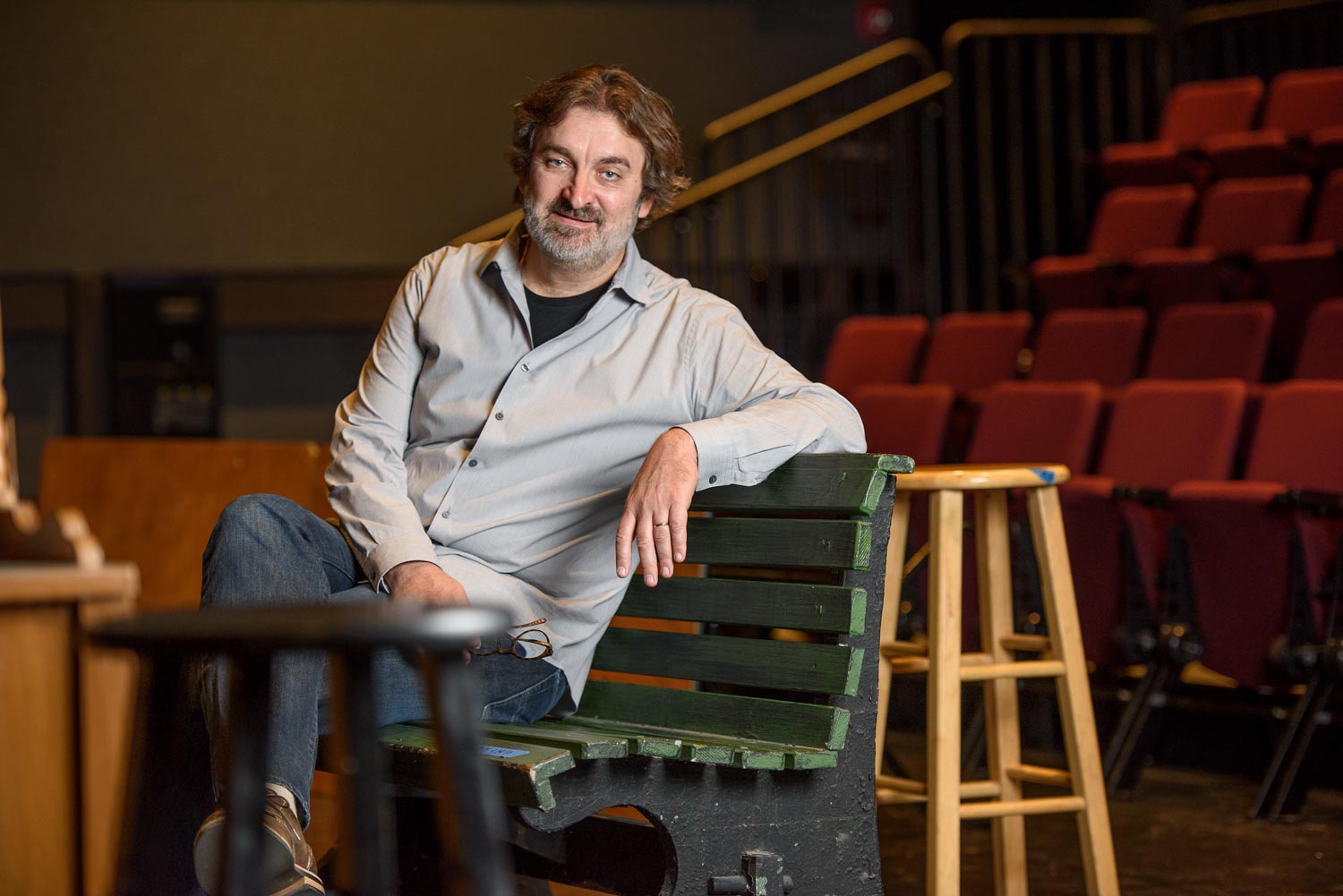The first panel of the Aktionstage: Refugees – Migration – Democracy Symposium held at the Academy of Fine Arts in Vienna, entitled (Not) Learning from history, part I: Yugoslav refugee crisis – how Europe dealt with it from left to right, moderated by Vedran Džihić (CAS SEE, University of Rijeka, oiip, Vienna) included the presentations of Zoran Slavinić (REMESO, Linköping University), Branka Likić-Brborić (REMESO, Linköping University) and Melita H. Sunjic (UNHCR, Vienna) that engaged both listeners and speakers in debates on the changing nature of European democracy in the midst of the ongoing refugee crisis.
The second panel, (Not) Learning from history, part II: Integration and democracy from left to right, moderated by Sanja Bojanić (CAS SEE, University of Rijeka) delt with the nature of the contemporary demos. The panel provided experts from various disciplines: Ilker Ataç (University of Vienna), Gudrun Biffl (Danube University Krems), Holly Case (IWM, Brown University) and Li Bennich-Björkman (Department of Government, Uppsala University) with the opportunity to offer sensible and culturally diverse outlooks on political participation, contribution and agency. Their explorations of the topics of political optimism, institutional control and emotional engagement provided a fascinating basis for further discussions about the proper response to the refugee crisis.
The third panel, Demos – Who belongs to the political community? moderated by Gerd Valchars (Initiative Minderheiten, Vienna) included presentations of Hedvig Morvai (European Fund for the Balkans, Belgrade), Katharine Sarikakis (University of Vienna) and Snježana Prijić-Samaržija (CAS SEE, University of Rijeka).
At the conference, the co-director of the Center for Advanced Studies SEE, professor Snježana Prijić-Samaržija presented her answer to the problem of belonging to a political community. Prijić-Samaržija’s presentation approached the issue of migration from an institutional perspective, questioning the legitimacy of someone’s right to impose limits on the freedom of movement. Throughout the speech, she explored the legitimacy of unilateral prohibitive decisions made by particular states and the implications of their unsustainable one-dimensionality, juxtaposing them with the notion of migration as a basic human right. Should we choose to view the right to seek better political and economic conditions as a manifestation of contemporary social mobility, we would need to address the option that nobody can legitimately limit the movement of others. Striving to reach a balanced conclusion, Prijić-Samaržija proposed delegating the issue of migrations to international institutions capable of adjusting the subjective interests of particular states to the interests of migrants. Relating to the broader topic of the conference, she emphasized the necessary hierarchy of urgency between the migration of genuine refugees, low-skilled workers escaping poverty and high-skilled experts seeking better payment. Her presentation incited many responses from the audience, leading to a discussion about the nature of credible international institutions and the danger of excessive euro centrism.

